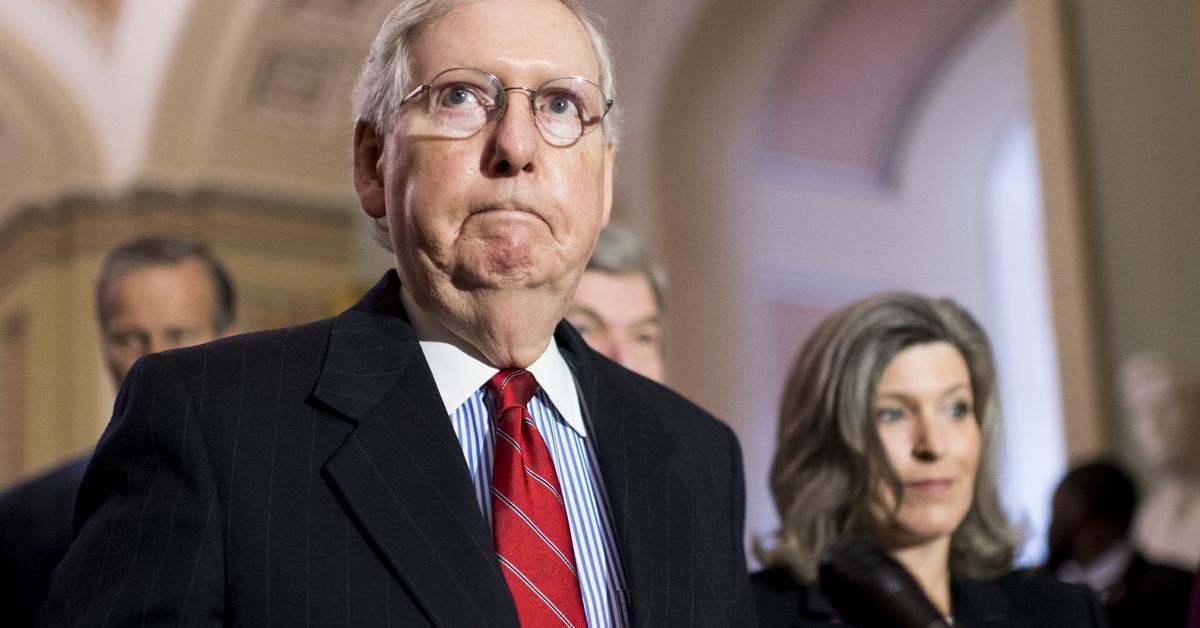
In 2016, election infrastructure across the country was targeted by foreign actors. Some voters in North Carolina were told they already voted when they hadn’t. Russian hackers broke into two networks in Florida. And most notably, the Clinton campaign and Democratic National Committee left the entire election due to foreign hacking fears.
With only 362 days left before millions of Americans vote for the next president of the United States, Congress has done almost nothing to make sure 2020 doesn’t play out like 2016.
Earlier this week, a joint statement from seven national security agencies warned of the looming threat to the integrity of the 2020 elections. “Our adversaries want to undermine our democratic institutions, influence public sentiment and affect government policies,” the officials said. “Russia, China, Iran, and other foreign malicious actors will seek to interfere in the voting process or influence voter perceptions.”
If we’re going to be prepared for that interference, federal funding needs to come fast. The federal government can strategize all it wants, but until money gets into the hands of local election officials, the most immediate needs, like securing databases and updating voting machines, can’t be met. And time is running out for delivering that money.
Lawmakers on both sides of the aisle have put forward bills to require paper ballots, regulate online political advertising, and update election infrastructure. But almost none have received a vote on the Senate floor. Senate Majority Leader Mitch McConnell (R-KY) has shown little support for any of the mostly Democrat-led security measures. In October, McConnell agreed to provide $250 million to the states for election security, but that number pales in comparison to the $2.2 billion over five years that organizations like the Brennan Center for Justice have estimated is necessary just for the states’ most immediate needs.
That meager concession from McConnell doesn’t even come close to the $600 million the House of Representatives voted to appropriate to the states for security over the summer. The House has been far more forthcoming, making security a priority this Congress and clearing landmark bills like the For the People Act or H.R. 1 that would not only bolster infrastructure but require online advertising platforms like Facebook and Google to be more transparent about which candidates or organizations are placing ads, how much they’re spending, and who they are targeting.
So far, McConnell has been skeptical of any attempts by the federal government to aid in election security, seeing it as the province of state and local governments. “The Trump administration has made enormous strides to help states secure their elections without giving Washington new power to push the states around,” McConnell said in October. As a result, he’s blocked many of the bills on conservative principle.
Platforms and civil society have started to pick up the slack as the government continues to kick the can down the road. As Wired noted over the weekend, many Silicon Valley giants are providing new services to protect US elections for a small cost or entirely for free. Facebook has a handful of new monitoring tools to help candidates stave off would-be hackers. Microsoft’s AccountGuard product notifies campaigns of potential phishing attacks or hacking efforts. Google’s Jigsaw division has also begun to defend campaign sites from DDoS attacks.
But private companies can really only monitor potential threats and help educate election officials. The longer it takes Congress to get any federal money to the states, the less time they have to purchase and install new voting machines or require paper ballots, something private industry really can’t help with. As it gets closer to election time, state and local communities may be able to hire more IT officials or conduct post-election audits, but bigger projects like purchasing new equipment will become more and more cumbersome.
“It is critical that Congress agree to fund the states as soon as possible,” Liz Howard, a former Virginia election official and counsel at the Brennan Center, told The Verge. “And while the states have a large menu of election security projects that could implement if they got the money tomorrow, that menu gets smaller and smaller the closer to the election that we get.”
Leading up to the 2016 election, Florida election official Mark Earley said that his district’s voting machines were so out of date that he resorted to eBay to purchase replacement modems. “They were even hard to find on eBay,” Earley told the Tampa Bay Times in 2015. “The system was a great system, for as long as it lasted. But as that modem issue showed, it was nearing the end of its life.”
That’s just one voting district in one state in the US. There are likely hundreds of counties facing these same issues without the money to upgrade their infrastructure. In 2002, Congress approved the Help America Vote Act, which dispersed $4 billion in federal funding to the states to help them buy entirely new voting systems. Before this bill passed, many districts across the country were still using punchcard or lever machines. But by 2006, most were able to upgrade to the electronic ones that are more broadly used today.
That kind of mass investment from the federal government is what’s needed here again in 2019. Many lawmakers have already warned that the government is running out of time to get these valuable resources out to the states before the upcoming election. Much of the legislation that could help fix the problems and secure our elections is already written. Now, lawmakers have to vote.
https://www.theverge.com/2019/11/8/20953967/election-2020-cybersecurity-hacking-russia-appropriations-mcconnell

